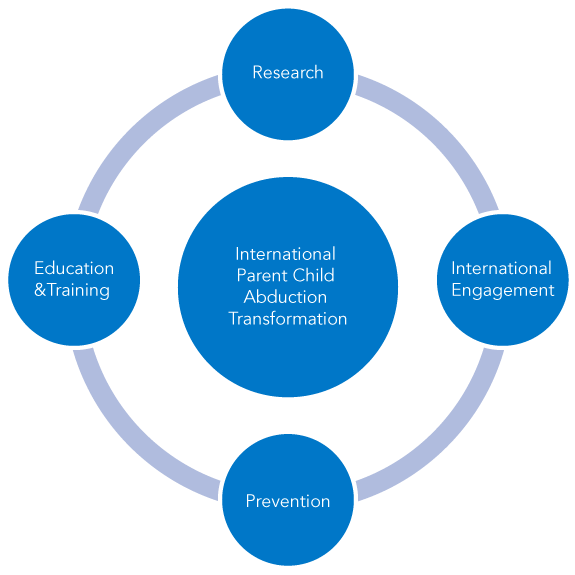The Four Orientations Model™ aligns with longstanding governmental policy recommendations and expressed stakeholder preferences for a more dynamic, consistent, and effective approach to IPCA prevention and resolution. This approach is grounded in transparent research and data analysis and to drive domestic and international policy responses, institutional improvements, and greater international cooperation to respond to and resolve abductions.
Each element of the Model contributes to a holistic approach to IPCA issue transformation. Each element has scalable capabilities as our research products and competencies expand.

Research
An international, interdisciplinary research agenda that reviews, synthesizes and updates the intersecting bodies of literature, assesses current domestic and international policy responses, drives important conversations, and informs decision making and action regarding IPCA.
Prevention
A publicly-available, accessible information clearinghouse upon which stakeholders can rely to obtain current, relevant, and useful research, data, and best practices for IPCA prevention.
Education and Training
High-quality, creative, flexible, and cost-effective education and training programs that increase individual and organizational capacity to prevent and respond to IPCA and build resource capacity for the Office.
International Engagement
A globally-connected community of scholars, activists, families, government officials, non-governmental and civil society organizations, and volunteers working creatively and cooperatively to improve IPCA prevention and resolution.
